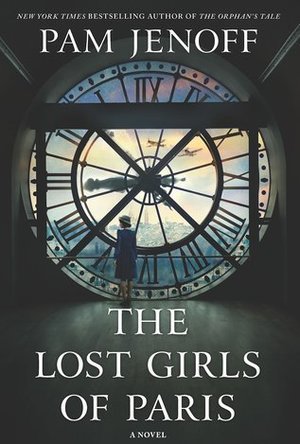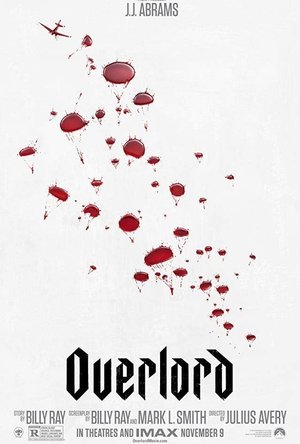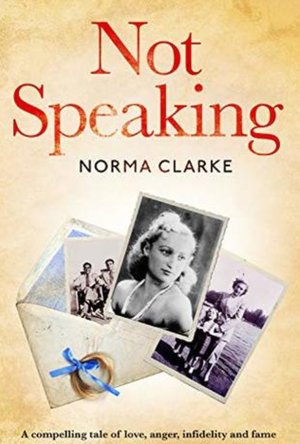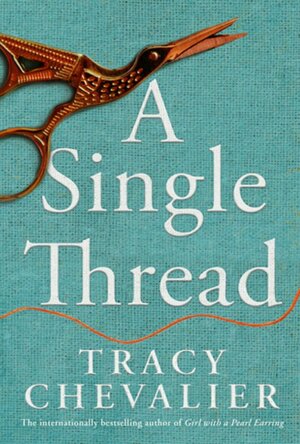Ivana A. | Diary of Difference (1171 KP) rated The Lost Girls of Paris in Books
Feb 3, 2020
<img src="https://i2.wp.com/diaryofdifference.com/wp-content/uploads/2019/06/Book-Review-Banner-3.png?resize=1024%2C576&ssl=1"/>;
In the 1940’s, with the world at war, Eleanor Trigg leads a mysterious ring of secret female agents in London. Twelve of these women are sent to Paris to aid the resistance.
<b>They never return home!</b>
Shortly after the war ends, passing through New York’s Grand Central Station, Grace Healey finds an abandoned suitcase beneath a bench. The case is filled with a dozen photographs, each of a different woman.
Setting out to find the women in the pictures, Grace is drawn into the mystery of the lost girls of Paris, their fierce friendship, unthinkable bravery – and, ultimately, the worst kind of betrayal.
Eleanor is a woman that men fear and women hate. Wherever she goes, fear follows. However, in a world of men who lead and men who are in war, she starts a programme in London where she recruits women, prepares them and deploys them to help in the war. The women have to aid the man, transmit radio messages and blend in with the french people. Eleanor makes sure they are prepared for every possible scenario, and she would’ve joined them, if they let her. As much as she seems cruel, she loves her girls like her daughters, and when things go horribly wrong, she blames herself.
Marie never imagined she would be recruited by Eleanor. Leaving her daughter behind and going into the unknown, she is deployed in Paris for a very dangerous mission. But can friendships so easily made survive the dark days of war? And what happens when Marie is one of those twelve women that disappear without a trace, never to be seen again…
And then Grace finds the suitcase full of photos of women and she can’t help but wonder what happened to them. The paths of these three women will indirectly cross over, leaving us, readers, with an amazing story to follow.
The writing is incredible and it transports you right in the 1940’s. Feelings and emotions are overflowing. I am not completely sure how I felt with the ending, as it ended too predictable for my taste, with a lot of unrealistic scenes and no character development, really.
But even despite all that, it warmed my heart and made me rethink my life decisions. The Lost Girls of Paris is a book about women who are brave and loyal. Women who are not afraid to stand up and fight. Women who have everything to lose and nothing to regret. A tale of pure emotion.
Thank you to the team at HarperCollins – HQ, for sending me a paperback ARC copy of this book, in exchange for my honest review.
<a href="https://diaryofdifference.com/">Blog</a>; | <a href="https://www.facebook.com/diaryofdifference/">Facebook</a>; | <a href="https://twitter.com/DiaryDifference">Twitter</a>; | <a href="https://www.instagram.com/diaryofdifference/">Instagram</a>; | <a href="https://www.pinterest.co.uk/diaryofdifference/pins/">Pinterest</a>;
Daniel Boyd (1066 KP) rated Overlord (2018) in Movies
Feb 6, 2019 (Updated Feb 6, 2019)
The movie opens with a fantastically shot plane crash sequence that manages to convey a sense of extreme intensity as Private Boyce jumps out the exploding plane that was carrying his squad and plummets to the ground below. This sequence also does a brilliant job of setting the tone of the movie that the audience can expect going forward.
Surprisingly, the Nazi zombie stuff doesn't actually make an appearance until about 1/3 into the movie and the first act is spent telling a more traditional and realistic war story and setting up the relationships between the characters that we are following. Even when we do start to see some of the weirder stuff taking place, it is fairly reserved in comparison to what you might be expecting. This isn't Dead Snow or Wolfenstein. However, that doesn't necessarily mean that it's underwhelming, the few amount of monstrosities that we actually get to see are impactful and feel genuinely threatening.
The cast are serviceable in their roles, even if they are fairly stereotypical. The stand out is Pilou Asbaek, who may know as the evil Euron Greyjoy from Game Of Thrones. Here, he plays the dastardly, villainous Nazi with a venomous snarl that really tells you everything that you need to know about his character and his intent.
The one negative I had with the movie were the few telegraphed jump-scares that the filmmakers threw in to remind us that this is supposed to be a horror movie, but thankfully there aren't too many of these present throughout the film.
Overall, this is a fun action/horror movie set against the backdrop of the Second World War that is a blast to sit through. There is plenty of cringe-inducing violence and gore created by mostly practical means that will scratch the horror itch that some audience members may be looking for and although this wasn't quite the movie that I was expecting going in based on the trailers, I can't say that I came away disappointed.
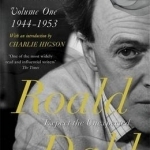
The Complete Short Stories: Volume One: Volume one
Book
The Complete Short Stories of Roald Dahl in the first of two unsettling and sinister volumes. 'They...
ClareR (6054 KP) rated Not Speaking in Books
Jun 14, 2019
There’s more to this than a family history though. Norma takes us through some of the social history of East London, Greek mythology (which explains some of her mother’s mindset, I think), and links some of he places she visits to her favourite authors.
It’s just such an interesting book. I wanted to know what happened to all of these people, why they weren’t speaking for one thing! It was truly a delight to read. She writes so descriptively: one minute you can’t believe that her mother can be so blunt and seemingly unfeeling (and therefore I rather disliked her for it), and the next minute, you realise she is as she is, and feel empathy for her. And during all of this, there is the rest of the family. They have their disagreements, yes, but ultimately they are family and they’re always there for one another when they are needed.
I really enjoyed this book. Many thanks to The Pigeonhole, and to Norma Clarke for reading along with us and answering questions.
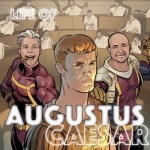
Life Of Caesar
Podcast
On the 19th August, 14 CE, 767 years after the founding of Rome, nearly exactly 2001 years ago, the...
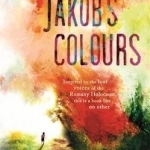
Jakob's Colours
Book
Inspired by the lost voices of the Romany Holocaust this heartbreaking and tender novel will appeal...
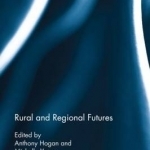
Rural and Regional Futures
Anthony Hogan and Young Michelle
Book
Agriculture, mining and related rural industries have been central to the development of Australia's...
Ivana A. | Diary of Difference (1171 KP) rated A Single Thread in Books
Feb 3, 2020
<img src="https://i1.wp.com/diaryofdifference.com/wp-content/uploads/2019/09/Book-Review-Banner-18.png?resize=1024%2C576&ssl=1"/>;
<i>When the team from LoveReading UK contacted me regarding A Single Thread, all I knew was that I loved Girl With A Pearl Earring by Tracy Chevalier and would therefore read any other book she writes.</i>
A Single Thread follows the life of Violet, during the year 1932, a few years after the First World War. Violet has lost her brother and fiance in the war and is still learning to cope. She is labelled as a ”surplus woman” by the society, a woman that in unlikely to marry.
With the grief, the society label and the suffocation of her mother, Violet starts a journey that will change her life.
She is determined to find where she belongs and who she truly is, in a time where being a woman and succeeding on your own was not praised by others.
Her journey starts with a long walk in a few towns, something she used to do with her late father and brother, and it continues with her learning canvas embroidery (today knows as needlepoint), and the beautiful art of bell ringing (which pleasantly reminded me of The Hunchback of Notre Dame by Victor Hugo, a book I read in high school and one I should re-read).
With Tracy’s writing, it is always so easy to lose yourself in the book and teleport to the past and re-live every scene as if you’re there. It is such a pleasurable experience.
I loved Violet, and I loved how she coped with all challenges of that era. Post First World War times were extremely hard, with too many men dying and too many women not being able to ever marry. Violet’s courage and hope kept moving her forward!
<b><i>This novel yells courage. It yells freedom. It yells independence. And standing along Violet, while she finds courage when you least expect to was a moment I will cherish.</i></b>
I recommend it to you, if you love novels in the war time period, or novels that talk about courage!
Thank you to the team at LoveReading UK, for sending me a copy of this book in exchange for my honest review.
<a href="https://diaryofdifference.com/">Blog</a>; | <a href="https://www.facebook.com/diaryofdifference/">Facebook</a>; | <a href="https://twitter.com/DiaryDifference">Twitter</a>; | <a href="https://www.instagram.com/diaryofdifference/">Instagram</a>; | <a href="https://www.pinterest.co.uk/diaryofdifference/pins/">Pinterest</a>;
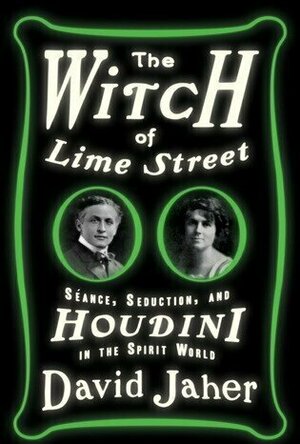
The Witch of Lime Street: Séance, Seduction, and Houdini in the Spirit World
Book
History comes alive in this textured account of the rivalry between Harry Houdini and the so-called...
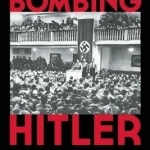
Bombing Hitler: The Story of the Man Who Almost Assassinated the Fuhrer
Hellmut G. Haasis and William Odom
Book
Georg Elser was just a working-class citizen living in Munich, Germany. He was employed as a...
